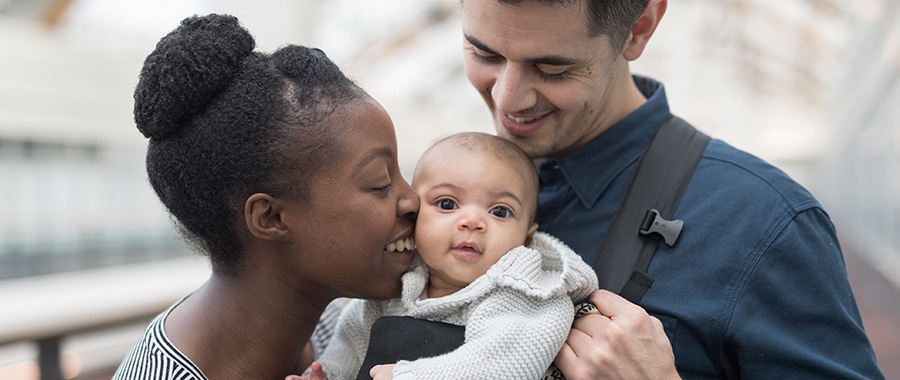The views expressed in our content reflect individual perspectives and do not represent the authoritative views of the Baha'i Faith.
As we watch over and protect our children, who watches over us?
A couple of months ago, as my family attended an outdoor event on a beautiful Saturday morning, I was reminded of the spiritual significance of family, and the high importance of allowing parents the space they need to nurture their children into adulthood.
At one point during the outing I needed to leave temporarily to drive somewhere with my three year old son. We were gone for twenty minutes or so. In the time we spent driving around he fell asleep in his car seat. When we got back, I really didn’t want to wake him. He was behind on sleep and needed a morning nap to get through the day happily. I had duties to attend to, but I could still stay close to the car. The compromise: I rolled down the windows and walked over to check on him every couple of minutes or so, just to make sure that if he woke up he wouldn’t feel abandoned or alone.
So for the next forty-five minutes I would get up every minute or two, walk over, and simply lay eyes on him to see if he was still sleeping soundly—a parental spy with nothing to spy on except a three year old snoozing in his car seat. When he woke up I was standing right there at the window. He of course never had any idea I was doing any of this, which is normal for children. Most of us are completely oblivious of the great pains our parents take to secure our place in this world. The thought crossed my mind that this is like God’s care for humanity as a whole. The extent of God’s providence is completely beyond our comprehension.
The next thought that crossed my mind is that by walking over to the car, laying eyes on my son, and going back to what I was doing, I was fulfilling in a literal way, what the Baha’i teachings describe in a somewhat figurative way. In Baha’u’llah’s book of beautiful spiritual aphorisms, The Hidden Words, there is a passage written in the voice of God that reads:
Thus, ere thou didst issue from thy mother’s womb, I destined for thee two founts of gleaming milk, eyes to watch over thee, and hearts to love thee. – Baha’u’llah, The Hidden Words, p. 32.
In addition to breastfeeding, Baha’u’llah depicts simply keeping an eye on one’s children and loving them as manifestations of God’s love to the child.
Those lines come from a larger passage about God’s loving care for all human beings:
Out of the wastes of nothingness, with the clay of My command I made thee to appear, and have ordained for thy training every atom in existence and the essence of all created things. Thus, ere thou didst issue from thy mother’s womb, I destined for thee two founts of gleaming milk, eyes to watch over thee, and hearts to love thee. Out of My loving-kindness, ’neath the shade of My mercy I nurtured thee, and guarded thee by the essence of My grace and favor. And My purpose in all this was that thou mightest attain My everlasting dominion and become worthy of My invisible bestowals. – Ibid.
Beyond any material or social concerns, Baha’u’llah outlines a higher spiritual destiny for our children by stating God’s purpose for them—the attainment of “My everlasting dominion” and “My invisible bestowals.” In the hustle and bustle of everyday life it can be easy to lose sight of higher matters. Food, clothing, cleanliness, getting to places on time can be all-consuming. But just as we have physical urges, our souls have spiritual impulses too, which must be channeled toward developing praiseworthy qualities and performing noble deeds.
Caring for my kids is an element of God’s providence towards them. That’s the responsibility on my and my wife’s shoulders, and indirectly that’s the weight on everyone else’s shoulders too. No family lives in isolation. We live in constant contact with the rest of society. So the reverse is true, too: the rest of society is in constant contact with families. Anything we do that negligently interferes with other people’s ability to take care of their children can be seen as a violation of God’s plan. Granted, in cases of child abuse and neglect any community’s duly constituted authorities have the right to separate children from their parents. But otherwise, it’s our duty to respect the spiritual role they have been chosen to perform.
Parents aren’t just individuals with emotional ties to their family. Their role is more important. God makes use of them to nurture the children of humanity into social and spiritual adulthood.
















Comments
Sign in or create an account
Continue with Googleor